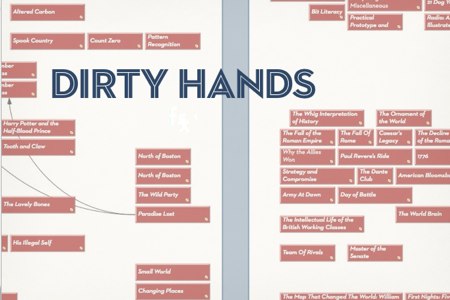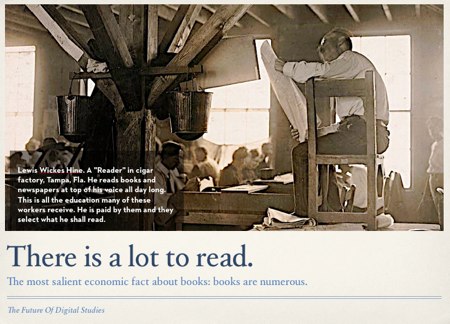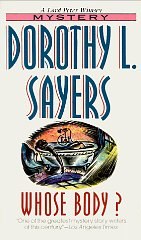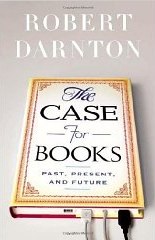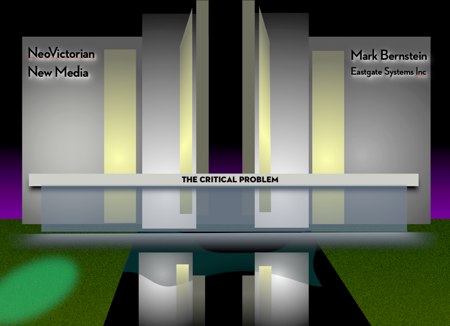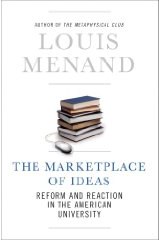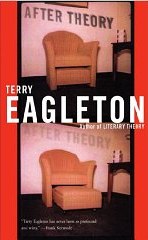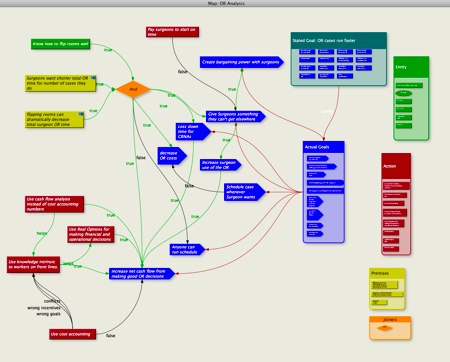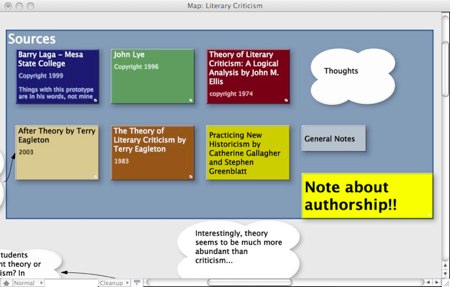It is too easily forgotten, amid the copyright wars, how Google has already changed scholarship.
For my Hypertext 2010 submission this year (titled “Criticism”), I’ve been keeping Pope’s On Criticism by my desk. Yesterday at lunch, I turned at random to one of his Satires (To Augustus), which makes fun reading about Kids Today.
Now times are changed, and one poetic itch
Has seized the Court and City, Poor and Rich;
Sons, sires, and grandsires, all will wear the bays;
Our wives read Milton, and our daughters plays;
To theatres and to rehearsals throng,
And all our grace at table is a song.
This is good; substitute World of Warcraft for Milton and you could use this in the Living section of today’s newspaper. A little later (ll. 185-6) we’re talking about knowing what you’re doing:
Who builds a bridge that never drove a pile?
(Should Ripley venture, all the world would smile),
But those who cannot write, and those who can,
All rhyme, and scrawl, and scribble, to a man.
The editor of my edition (A. L. Burt, Publisher, nd) supplies a helpful gloss on Ripley:
Ripley was a celebrated architect of the time, and was employed by Sir Robert Walpole. He build the beautiful house in Houghton Park, Beds., now in ruins, but still showing what it was.
I’m a sucker for romantic ruins and this was lunch, so I said, "I bet Google will have a picture of this Houghton Park ruin today!" And a little Googling does find a very nice Houghton Hall which (a) was built for Walpole, (b) was designed by Ripley, but (c) is certainly no ruin today. I spent some time trying to learn how it fell into ruins and was restored, without success.
It turns out that there is a ruinous Houghton, Houghton House, which may have influenced Bunyan. This is (a) in Bedfordshire, (b) ruinous, but (c) unconnected with either Walpole or Ripley. It does, however, have many flickr images. It is still showing what it was. It’s very likely that this is what the footnote’s author had in mind, and that the annotation is simply wrong.

Houghton House. Photo: ©Edward Badley
I did this at lunch, on a lark, without leaving my desk. I didn’t need to do this, and I certainly know a lot less about Pope, Ripley, and his time than did the editor. But the Web gives us now a very real advantage, not least in making it harder for tour guides to make the sights we’re seeing even grander than they are.
